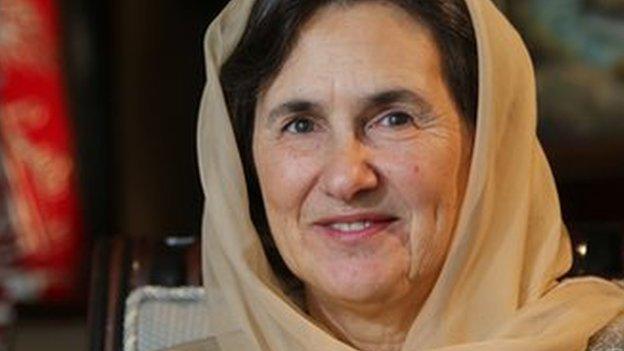Afghanistan's pace-setting president seeks results
- Published
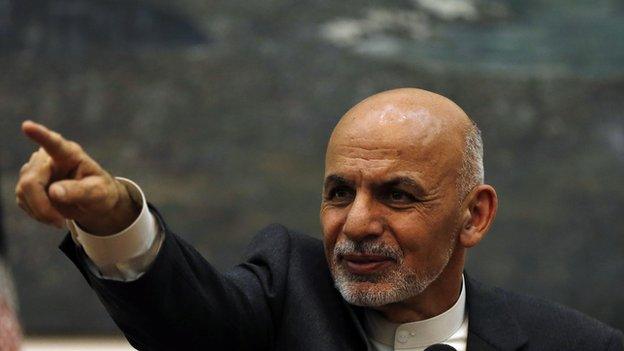
President Ashraf Ghani has taken a hands-on approach since taking office in September
Afghanistan's new President Ashraf Ghani still lacks a cabinet after his first 100 days in office and there's been a surge in Taliban attacks - but he's certainly hit the ground running.
His biggest initiative has been to sign security agreements allowing US-led forces to end combat operations at the end of last year.
But the country is being run by caretaker ministers while the militants seek to exploit the vacuum.
Despite the failures, many Afghans agree that Mr Ghani has already made his mark by setting a very different pace and tone to his predecessor Hamid Karzai.
In the western province of Herat local officials are still reeling from the lightning one-day visit they were paid recently by President Ghani.
Within hours of him arriving on a mission to investigate corruption and assess security, some two dozen people had been fired.
They included the police chiefs of all of the province's 15 districts as well as several high-level government officials.
"There were so many complaints about the heads of offices for education, oil and gas, electricity and customs," the president told shocked reporters at a late night news conference.
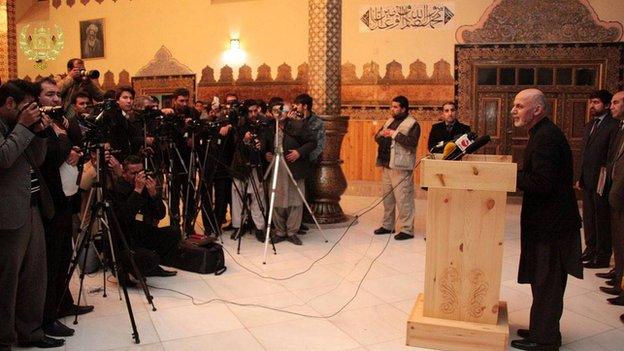
President Ghani briefed the media after sacking senior officials in Herat
"They are all sacked and all of them will be prosecuted."
Many of those who lost their jobs that day had powerful connections and were considered almost untouchable.
It was a strong message that under the new government corruption would not be tolerated, although no one has yet been appointed in their place.
The Herat trip was just the latest example of the very different approach President Ghani has adopted since taking office in September.
It's a marked contrast to his mild-mannered predecessor, Hamid Karzai.
Paper trail
One thing that's got Afghans talking is the president's habit of making surprise visits to state institutions.
Recent destinations have included a police checkpoint, a high school and Kabul's main prison, Pul-e Charkhi.
President Ghani is famous for his hot temper and observers say this is particularly in evidence if he feels officials are lying to him.
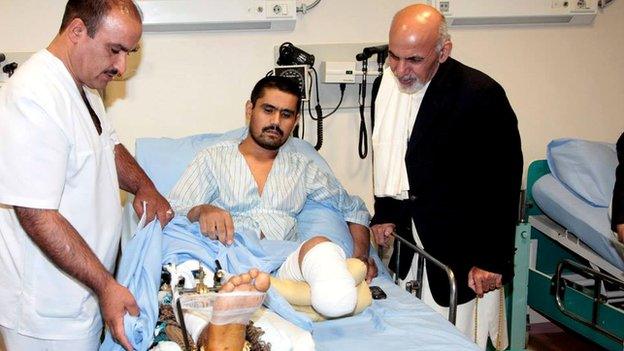
President Ghani meets staff and patients at the Kabul military hospital
Prior to one of his visits to a hospital, the management redecorated the floor that they believed the president would visit. When a furious Mr Ghani found out, he sacked the entire management team on the spot.
Inside the presidential palace staff say Mr Ghani, a former World Bank official, is setting a gruelling pace.
The president works seven days a week for up to 18 hours a day.
"Eight hours are dedicated to sorting out problems left over from the previous government," a source close to the president told the BBC. "Another eight hours are for vision and strategy, and two hours for dealing with emergencies."
Mr Ghani has ended the long, unscheduled, face-to-face conversations which were common during the previous government. He has also ordered that all communications with him should be in writing.
"The amount of paper used over the past 100 days is far more than the amount used over the past 13 years in the palace," the source said.
For many ordinary Afghans Mr Ghani's hands-on approach has been a breath of fresh air.
"The president's actions in his first days like sacking the head of military hospital, sent a message to all government employees that their every move is monitored and any mistakes will be taken seriously" says Hamidullah Farouqi, a senior presidential adviser.
But not everyone agrees it's a viable long-term strategy.
"He is an individualist," one official who did not want to be named told BBC Persian. "Instead of reforming the system so that things work smoothly, he does everything on his own and monitors everything on his own."
Mr Ghani's critics say the major failure of his first 100 days is that he hasn't been able to form a new unity cabinet with his election rival Abdullah Abdullah. They point to his desire to micro-manage everything as one reason it still hasn't happened.
"I have to interview every single official of the government," says the president. "This is my habit."
But in the next 100 days Afghans will expect their president to get a government in place so that the main challenges like improving security and getting the economy going can be addressed by a wider team.
- Published29 September 2014
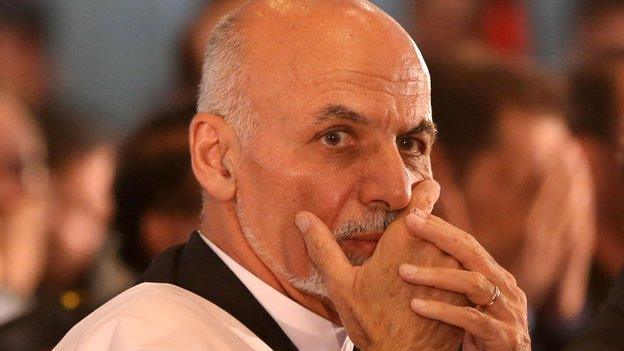
- Published26 September 2019
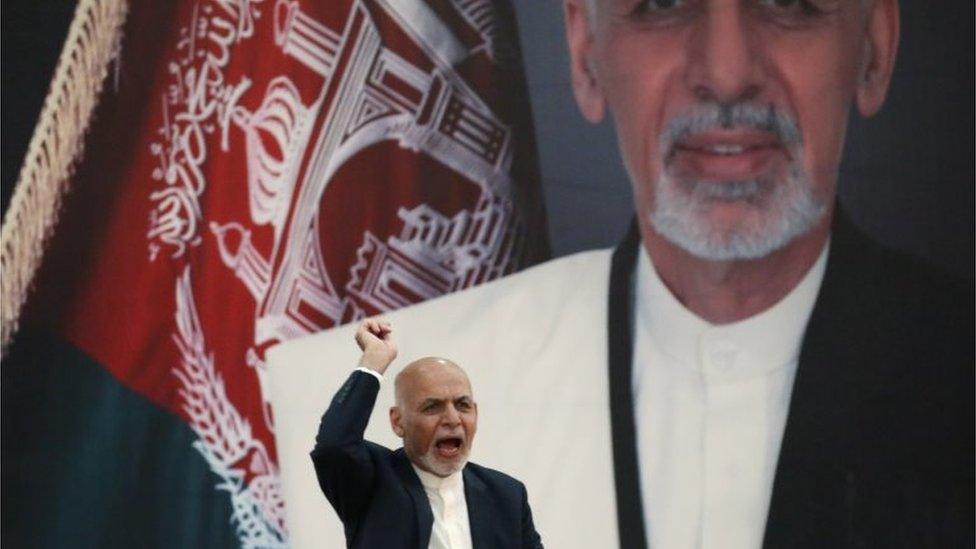
- Published15 October 2014
